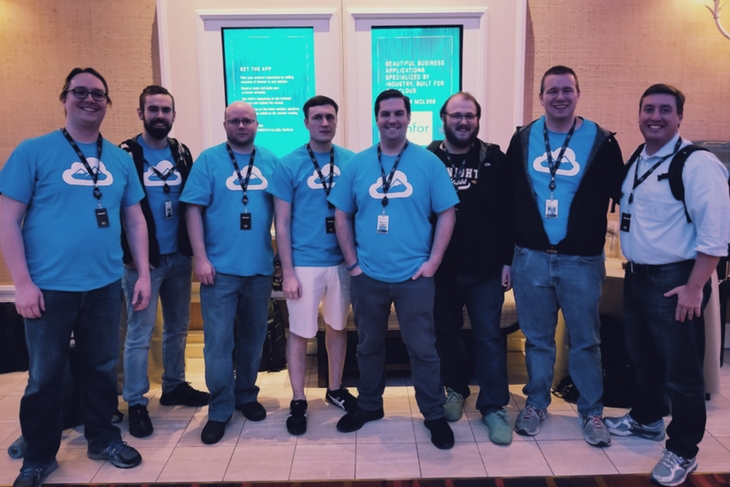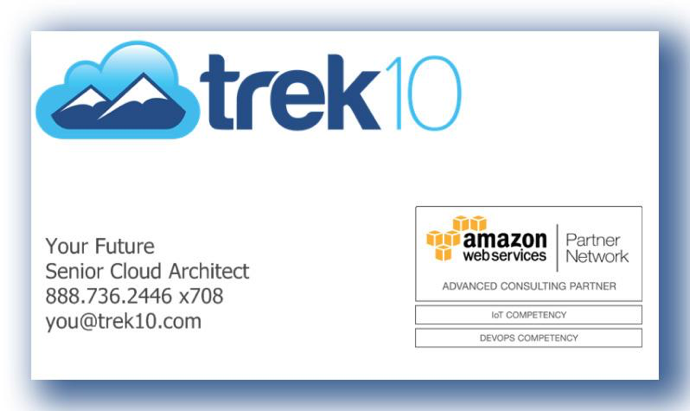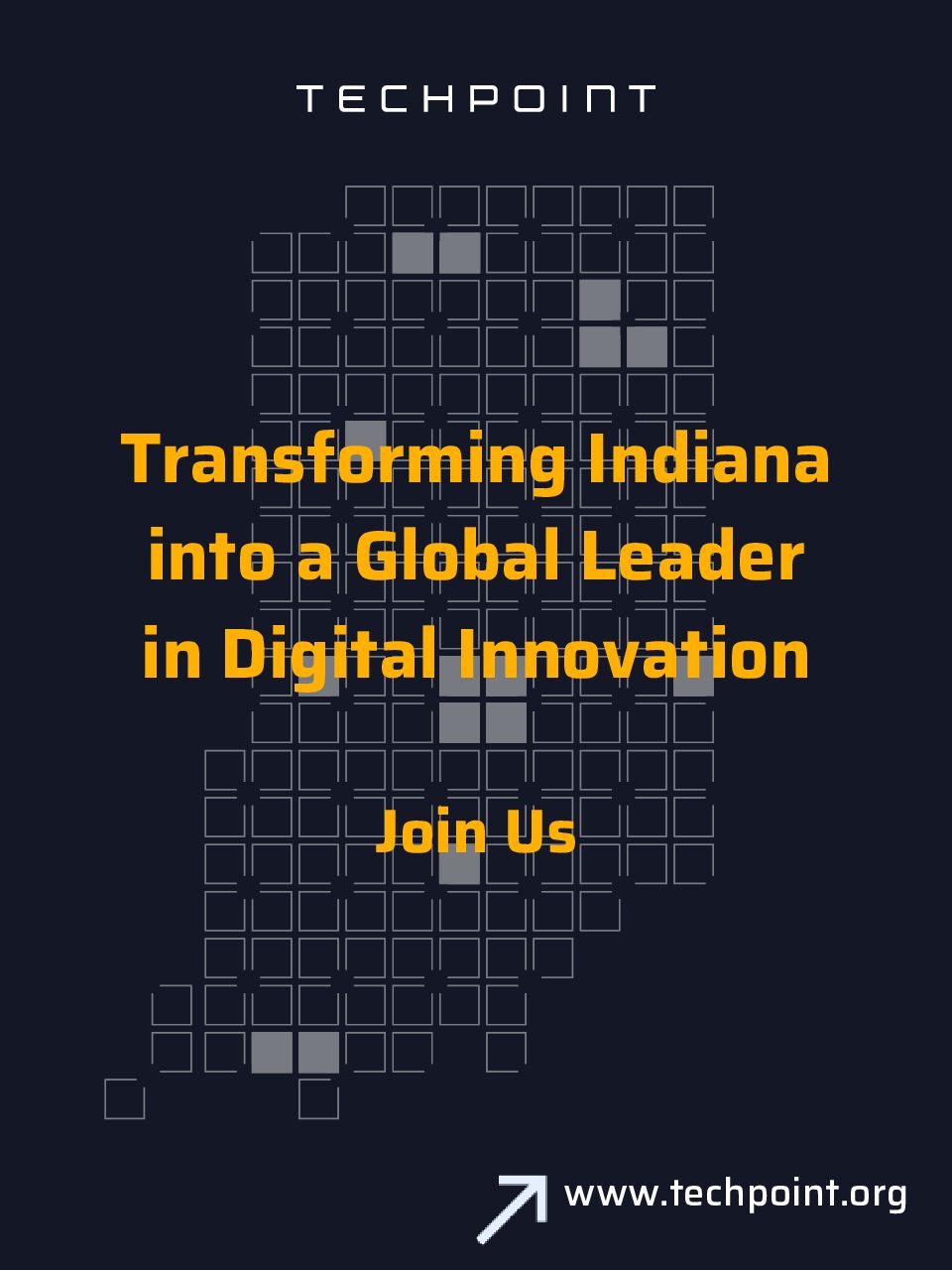Trek10 lives in the ‘rare air’ of AWS Advanced Partnership and serverless thought leadership
Industry analysts at Gartner predict that the infrastructure-as-a-service market will grow by more than 38 percent to reach $35 billion or more by the end of the year. Of course, Amazon Web Services (AWS) controls the largest share of this fast-growing market, which may even surpass the already super-fast growth of software-as-a-service over the next several years.
It’s understandable then, that companies focused on building and managing infrastructure-as-a-service (IaaS) and new technologies like serverless apps and architectures are forming and growing alongside the IaaS market players — AWS in particular. But not all providers are the same.

Jim AbercrombiePresident
“Whether you’re spending a million dollars a month or just starting out, if you want to get it done right the first time — and you really should — choose a credible partner with a good track record and lots of customer success stories.”

In the “rare air” of Amazon Web Services Advanced Partners (only about 250 worldwide), Trek10 is one of only 20 companies that has the AWS Dev-Ops Competency and one of only nine companies that has the AWS IoT Competency, explained Abercrombie. Trek10 is currently working on securing the AWS Managed Services Competency as well, and the company plans to pursue the fourth and highest level of certification in the AWS Partner Network, Premier Partner, when the new guidelines are introduced this week at the AWS re:INVENT conference in Las Vegas.
“All we do is focus on AWS, we don’t deal with any other clouds and we don’t deal with any traditional IT hardware,” Abercrombie said. “The thing I want people to know about us is that we’re a great company to work for and that we’re the experts in AWS. The world is moving to the cloud and new technologies like serverless computing, and that’s the whole reason we created Trek10, to help facilitate that move for our customers and support them going forward, specifically in the AWS ecosystem.”

With business on five continents — Asia, Africa, Australia, Europe and North America — Trek10 customers are industry agnostic ranging from cutting-edge high-tech businesses to traditional manufacturers that are just beginning their cloud journey. The company currently employs 17 people, mostly at its South Bend, Ind. headquarters along with several remote employees in Chicago, Washington D.C., and in Indianapolis, where the company plans to eventually open a second office.
Growth plans include hiring up to 40 people by the end of 2018, many of which will work from the South Bend headquarters, but the company assumes about 50/50 split in remote employees with the balance working from current and future Trek10 office locations. Trek10 has an engineering-based culture that welcomes tinkerers and the curious. The staff love solving problems and the work they do enables a very creative and stimulating environment working with cutting-edge technologies and platforms.
“We work with companies from major newspaper publishers to manufacturers and beverage makers, to Cards Against Humanity and some really cool Internet of Things-based startups, too” Abercrombie said. “We actually just signed a new deal with a water barge company out of Jeffersonville, Ind., and we work with this great solar energy company out of Tanzania, Africa, called Off Grid Electric that makes solar devices that go on huts and houses since there’s not a lot of hard electrical infrastructure there. So it’s a very, very diverse range of customers.”
Companies of all types in all industries today need to be in the business of creating a great end-user experience and promoting their core platform. They don’t necessarily need to be in the business of IT infrastructure. The question is always where that line is drawn, but if a company generally focuses on what they do best and lets others do what they are not so good at or what isn’t core to the business, the benefits can be tremendous.
Trek10 offers three primary lines of business:
- Cloud Core Professional Services — For those looking to move to the cloud or build something new in the cloud, Trek10 will architect it for you, create the plan and do the engineering.
- Cloud Ops Cloud Managed Services — Nothing built today is ever really “done.” Through Cloud Ops, Trek10 keeps everything running and fixes anything that breaks.
- Cloud Pro Experts on Demand — A blend of the two services above for updating and transforming apps and infrastructure. Cloud experts provide on demand responses to customer requests.
“We plan on growing all three of these lines of business by double and triple digits over the next 12 to 18 months,” Abercrombie said. “So we’re looking to recruit top technical talent with varying levels of AWS expertise. As long as someone is technically proficient, we can teach them AWS skills. In fact, we have a robust internal development program that is exceptional at getting people to a highly proficient or expert level in a really condensed time frame.”
Of note, Trek10 recently inked a new deal to expand and enhance its internal development program with fellow Indiana-based training software company Lessonly. Further developing its employee training program for speed and accuracy will continue to be a competitive advantage for Trek10 as the IaaS market grows.
Trek10 is also a thought leader in event-driven computing, or what is now known as serverless computing. “The first migration to the cloud generally saw companies leave thier data-centers but replicate their IT infrastructure in the cloud. There were several benefits like increased agility and scalability as well as a changing cost structure, but generally the environments had very similar properties of still being in the data center,” Abercrombie said.
“The transformational things you can do in the cloud come when instead of using virtual machines, you can actually start to just directly consume the services that have been built on top of AWS’s network, storage and compute offerings. So instead of spinning up a virtual machine and putting a database on it, you actually just consume database-as-a-service. This is the future — Mode 2 of cloud computing, if you will — it’s how IoT platforms work and it’s the niche that we’ve really carved out for ourselves at Trek10.”
Read more about Trek10’s Josh von Schaumburg, customer solutions lead, who was selected by an independent panel of subject matter experts to be part of TechPoint’s 2017 Tech 25 Honorees.



